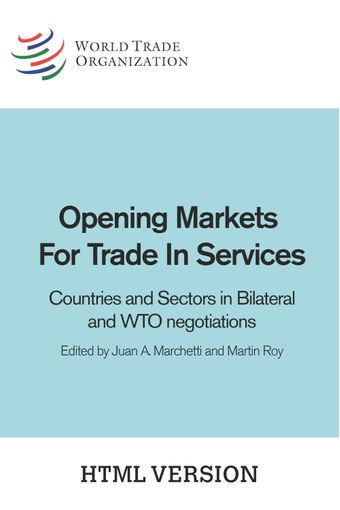The liberalization of energy services: Are PTAs more energetic than the GATS?

- De : Mireille Cossy
- Source: Opening Markets for International Trade in Services , pp 13-13
- Publication Date: janvier 2009
- DOI: https://doi.org/10.30875/6b68f8b6-en
- Langue : Anglais
Energy is an indispensable component of daily life. It gives us light, allows us to cook our food and heat – or cool – our homes, and transports us on road, rail, or water, or in the air. It underpins all economic activities. A lack of reliable and affordable energy supply affects human welfare and economic development. The importance of this sector for social and economic life, coupled with the specificities of energy trade, have led governments to be directly involved in the provision of energy goods and services. Until the beginning of the 1990s the structure of the energy sector left limited room for private operators. The market was dominated by large, vertically integrated state-owned utilities, which were responsible for the whole chain, from exploration and production to marketing and sale to the final consumer; trade in energy was seen essentially as trade in goods, in which services were a value added element. Moreover, many countries endowed with energy resources were not members of the GATT/WTO.
-
From This Site
/content/books/9789287046673s009-c015dcterms_subject,pub_countryId-contentType:WorkingPaperSeries -contentType:Periodical -contentType:BookSeries -contentType:ReportSeries105


